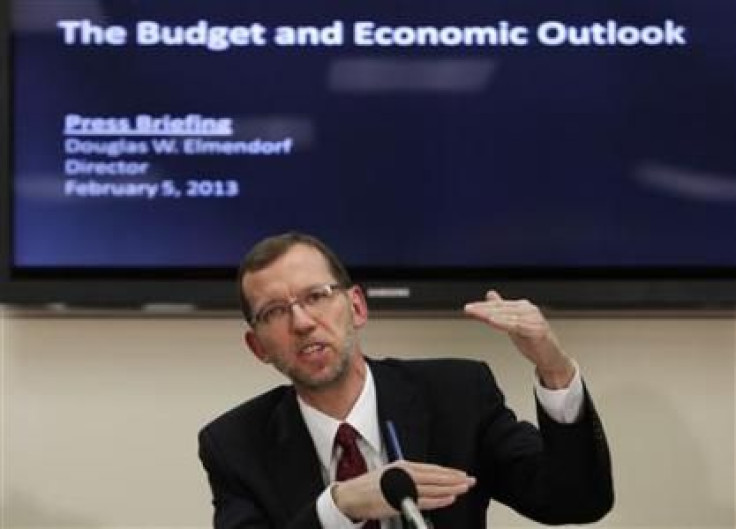
The Congressional Budget Office (CBO) estimated in a report on the comprehensive immigration reform legislation currently being debated and amended by the Senate that about 8 million undocumented immigrants residing in the United States would gain legal status if the bill were to be passed. The CBO concluded that the measure would prove a financial boon for the nation, saying the costs of government benefits for newly documented residents would be offset by their tax contributions to reduce federal deficits by about $175 billion over the next 10 years and about $700 billion over 20 years. ABC notes that the federal government is expected to run up a $642 billion deficit this year.
The agency projected two adverse effects the bill's measures could have on the nation's economy: average wages, it said, would decline through 2025 and unemployment would rise slightly.
RELATED: First Amendments Passed On Immigration Reform Bill Since Debate In Senate
In total, about 10.4 million more people would become permanent residents of the country over 10 years, the report found - a number which includes an increase of about 10.4 million permanent residents, an extra 1.6 million temporary workers and their dependents, and a decrease of about 1.6 million undocumented residents. The office said that the legislation would cause the flow of undocumented immigrants into the country by 25 percent by making it harder for people to come illegally and easier for them to enter legally.
RELATED: New Poll Finds Most Americans Support Border-First Immigration Policy Approach, But Latinos Differ
The study also addressed a primary Republican worry: that healthcare costs might surge with an influx of people given legal status. The CBO concluded that the government would spend $262 billion over 10 years on Medicaid and government subsidies and tax credits, but said that increases in federal revenues from income and payroll taxes would offset those losses.
RELATED: House Republicans Say Broad National Support For Immigration Reform Not Felt At Home
Proponents of the bill received the news warmly. The White House quickly issued a statement calling the report "more proof that bipartisan commonsense immigration reform will be good for economic growth and deficit reduction." Senator Chuck Schumer (D-NY), a "Gang of Eight" member who helped write the legislation, said the report "debunks the idea that immigration reform is anything other than a boon to our economy, and robs the bill's opponents of one of their last remaining arguments." Senator Marco Rubio (R-Fla.), another co-author who has been signaling that he will not vote for it unless changes are made in what it provides for border security, said the CBO had confirmed that "reforming our immigration system is a net benefit for our economy, American workers and taxpayers," but repeated his calls for changes.
One of the bill's opponents, Senator Jeff Sessions (R-Ala.), highlighted the negatives. "It's going to raise unemployment and push down wages," he said, adding, "the impact will be harshest for today's low-income Americans. Meanwhile, the 21 million Americans who can't find full-time work will have an ever harder time getting a job and supporting their families."
© 2024 Latin Times. All rights reserved. Do not reproduce without permission.